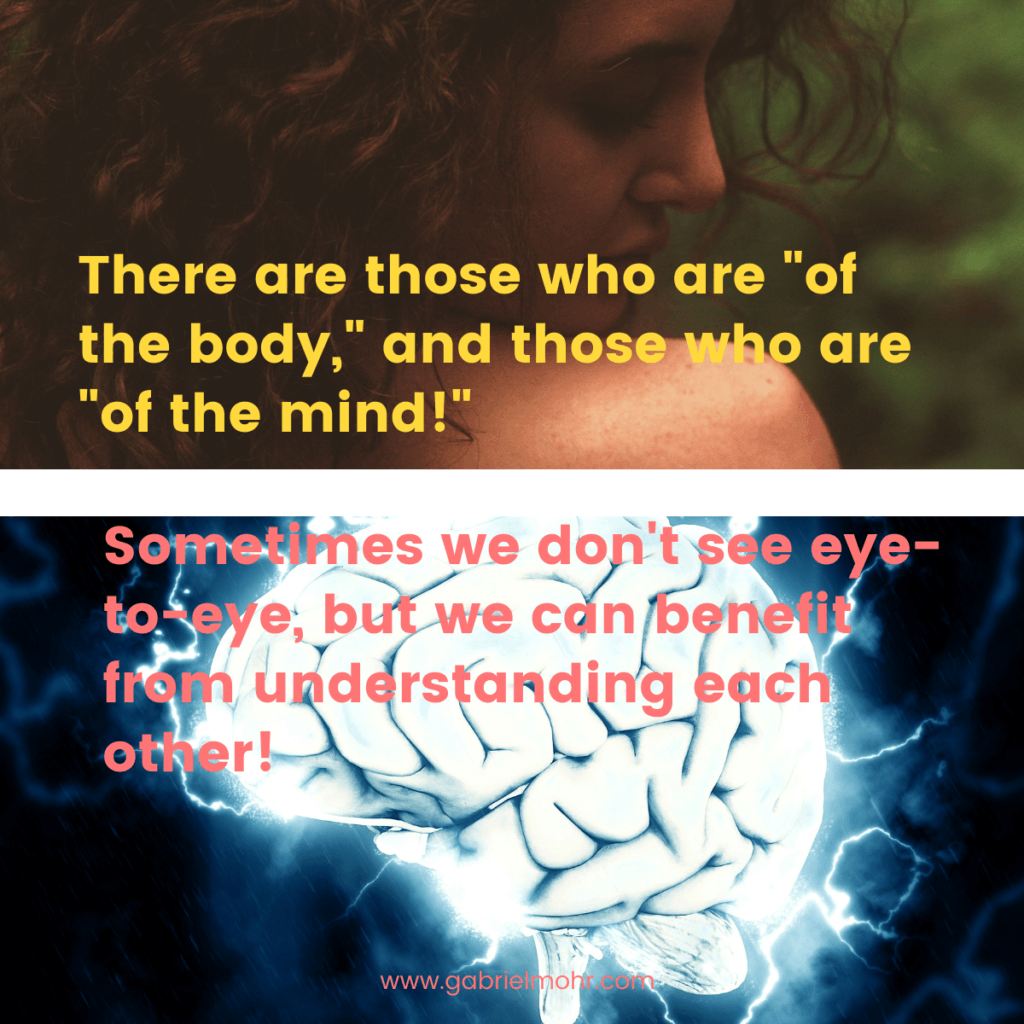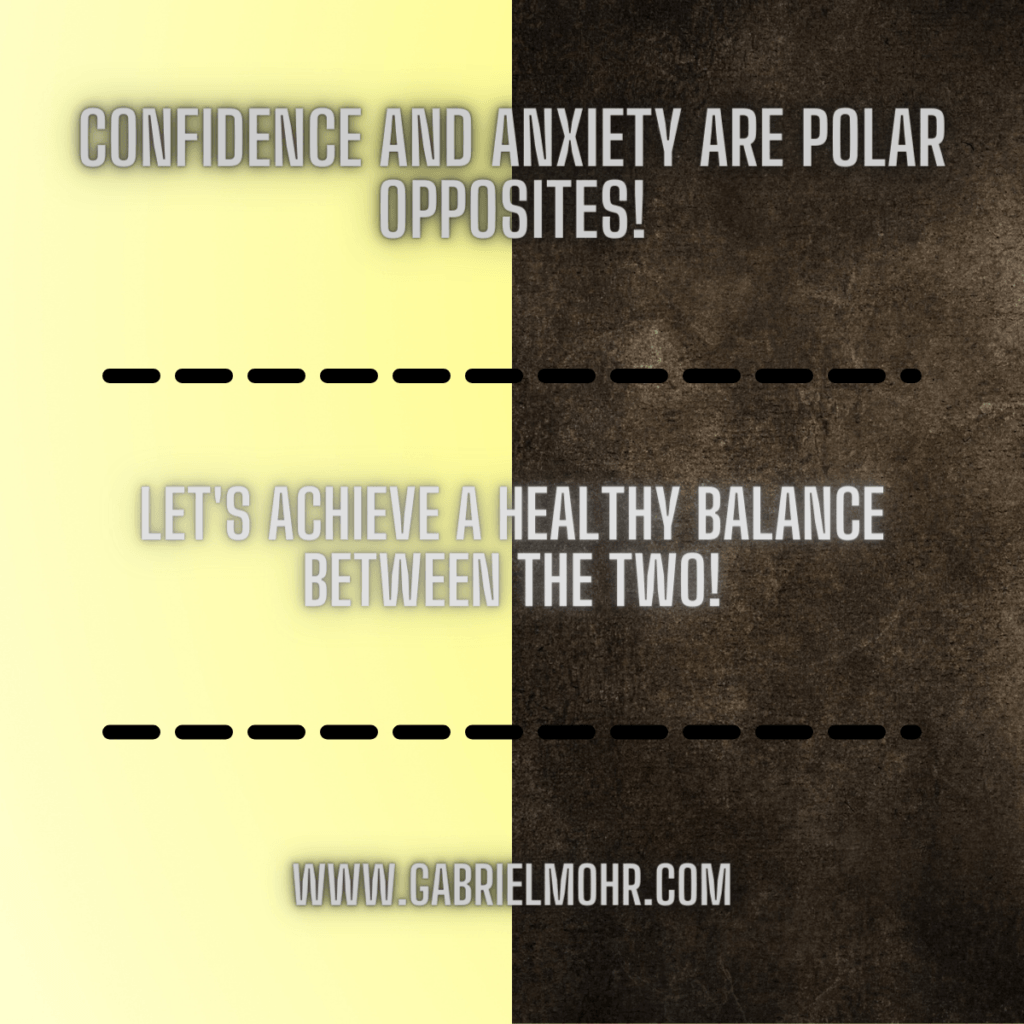
Quick Facts
-Some people are ‘of the mind.’ They think, theorize, and conceptualize. Some people are ‘of the body.’ They are sensual, like physical comforts and riches, and they’re usually okay with working.
-We usually misunderstand each other, hence the existence of this post!
Intro
Today we’ll be separating most of humanity into two kinds of people; people who use their minds, and people who are earthy by nature. We’ll do this because it’s helpful when we’re trying to understand each other and work together. Have a fun read!
My Observations
As I travel and observe I see many different kinds of people from many different kinds of backgrounds. Some seem kind and sweet, some seem diligent and studious, some seem like they need help, some seem like they need to help, some seem like they’re badass, some seem like they’re intelligent and well rounded, some seem like they could use a good smack on the head.
However, I’ve begun to look past all of these snap judgments and notice something very interesting – the two kinds of people in this world are those of the body and those of the mind.
“Well, that’s an… Interesting thing to say” you might be thinking. I’ll admit that this realization took me by surprise when it first came into my mind; after trying to dismiss it as an ungrounded assumption (like I do with most thoughts) I found it was there to stay, which forced me to investigate it further.
No one can be completely “of the mind” and no one can be completely “of the body.” Everyone has a body, and everyone has access to the mind, however being 100% in tune to one or the other would either mean that you’re floating in the ether or trapped as a stone somewhere (it’s not the best analogy since both mind and matter are inseparable, but you get my point).
However, some people (like Jordan Peterson) are naturally “of the mind” than other people (like Dwayne Johnson) who are naturally “of the body,” and from what I’ve observed it looks a little something like this:
Those of The Mind
- This shouldn’t come as a surprise to anyone but they think, and they think a lot. Complex ideas, mathematical formulations, architectural design, analysis of history, complicated concepts, and studies of countless different subjects are some of the things they like to think about/do when they aren’t sleeping. What these people can do with their mind is based on their particular skill set; some can memorize an entire deck of cards in 10 seconds while others can explain that “the meaning of life” is a gigantic hoax that should be known as such.
- While very mentally capable these people tend to be physically lacking in some way; some are completely crippled such as the late Stephen Hawking, some may have trouble speaking for one reason or another, while others are simply smaller than most other people. I’m not sure why exactly, but almost all POTM do have a physical deficit of some sort, however, having a physical deficit isn’t necessarily indicative of large access to the mind.
- They often find modern society very boring or very interesting; the ones who find society interesting tend to take part in it so that they can understand it, and the ones who find society boring go off and do their own thing in their own way, usually with a streak of brilliance. Sometimes there’s a balance of both, but usually, it swings one way or the other. Sometimes they feel rejected or left out since most of society consists of “people of the body.”
- The more of the mind, the less life is lived in the physical world. People who are of the mind can live through situations inside of their head without needing to act them out
- They tend to be forgetful about everyday things; Albert Einstein, for example, used to paint his door orange so that he could distinguish his house from the others inside of his neighborhood. They don’t mean anything by it, that’s just how they are.
- Lastly, it’s very hard for POTM to feel fulfilled in their life. These people spend so much time in their mind that they forget all about their emotional life; the longer and more often they neglect/ignore their feelings the further and further they stray from feeling meaning in their lives.
These points are the main truths about people of the mind even though there are a lot more than what I’ve listed here.
Those of the Body
- These people don’t have as much access to the mind as POTM do, but instead, they have rich and fulfilling emotional lives. They tend to follow social norms and feel quite fulfilled with going to work every day, spending a Saturday at the bar with their friends, listening to popular music, wearing popular clothing going to school/college for a particular career path, marrying, and having kids (sometimes while very young), paying mortgage on a house and payments for their vehicles, etc etc.
- The more “of the body,” the more stubborn and obstinate. This is because they know how to feel fulfilled and they are going to do whatever it is that makes them feel fulfilled no matter what.
- They often have at least semi-active if not fully active social lives, and they often find partners quite easily.
- The more of the body, the more life has been lived in the physical world instead of the mind. These kinds of people “go through a lot” and some gain a large amount of respect from their peers, depending on the environment.
- They suffer from ailments of the body but also delight in pleasures of the body far more than POTM. The more “of the body,” the easier it is to process certain events that would either give POTM traumatic memories or be “too much to handle.”
Besides what I’ve written here, I’m positive that we all know someone in our lives who is “super smart” and someone who “doesn’t want to change.”
It is simply that some are naturally in-tune with their minds more than their bodies, and some are naturally in-tune with their bodies more than their minds.
But why should I make this distinction known? What’s the point?
The Gap
This is an issue that hasn’t been addressed very often (maybe at all?); people of the body and people of the mind have very, very different ways of approaching life, and we let these differences keep us from helping each other.
For example, POTB look at POTM as weird and quirky. They look at them with an eye of suspicion, almost as if they need to prove themselves worthy of something. They take their advice with a grain of salt and keep moving forward in their ways without even considering the effects of their actions. They tend to ostracize and belittle POTM (sometimes consciously, sometimes unconsciously), seeing their ways as valueless and stupid.
On the other hand, POTM look at POTB as people who aren’t very smart. They think their company is dull and their values need to evolve. They think that they “just don’t get it,” and perhaps some even think, “It’s ok that I feel lonely, I’d rather be alone than participate in this kind of society.” They may think that POTB are people that need help. Or, perhaps, they’ve already gone off and joined a society that’s more suited to their own views without giving traditional society much thought whatsoever.
People of the mind must consciously go through the sufferings and pleasures of the body, and the people of the body must consciously decide to find God (hence the popularity of religion). I am not suggesting that everyone of the body become a Christian – far from it, they may “find God” which I’ve explained in another post.
It is often the case that someone naturally in tune with the body slowly becomes intellectual and/or mystical in their quest for God. Obversely, it is often the case that someone naturally in tune with the mind will find spiritual meaning in consciously playing the game of the physical world.
When one or the other finds a balance between the body and the mind the world stops to watch them for a moment before moving on in hopes of finding the balance for themselves.
This is why we need each-other; people of the body can help people of the mind experience the experiences they’re pulled towards, and people of the mind can help the people of the body find God through knowledge and wisdom.
Conclusion
It seems to me that the alienation of the two kinds of people is happening on a very subtle level at the moment. I suspect, however, that the gap will continue to increase until it becomes noticeable to both kinds of people that they’re “missing something” from their lives entirely, and I fear that day may come faster than we expect.
And so, urgently, I am writing this post as a first step towards the solution of this problem; people of the body must accept and help people of the mind, and people of the mind must accept and help people of the body. In this way, we can build trust between us once again and live fulfilling lives as human beings!
